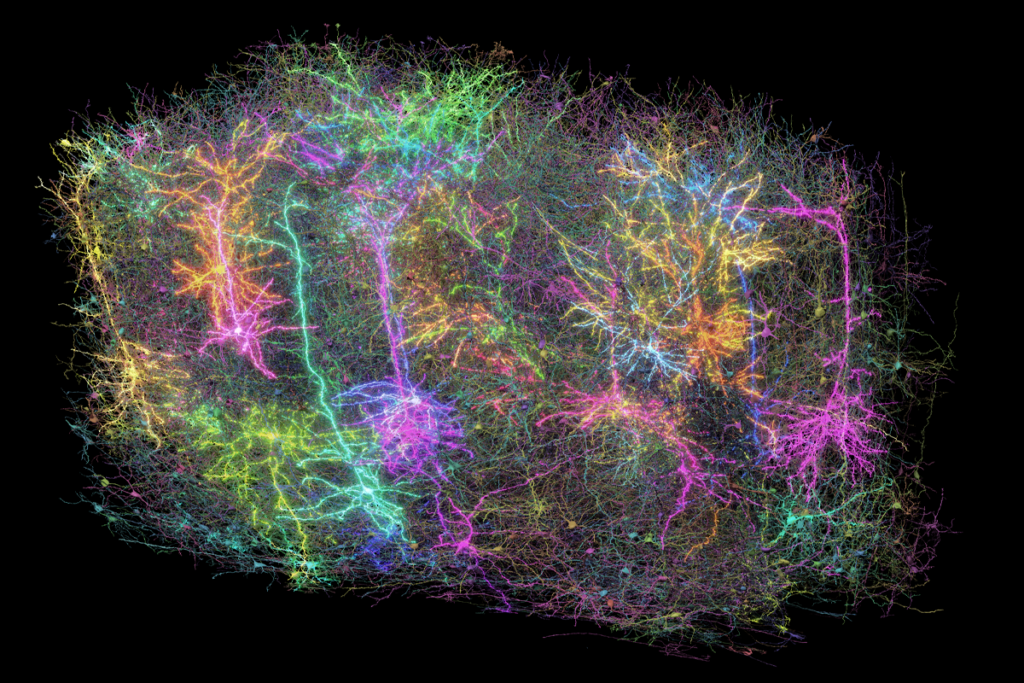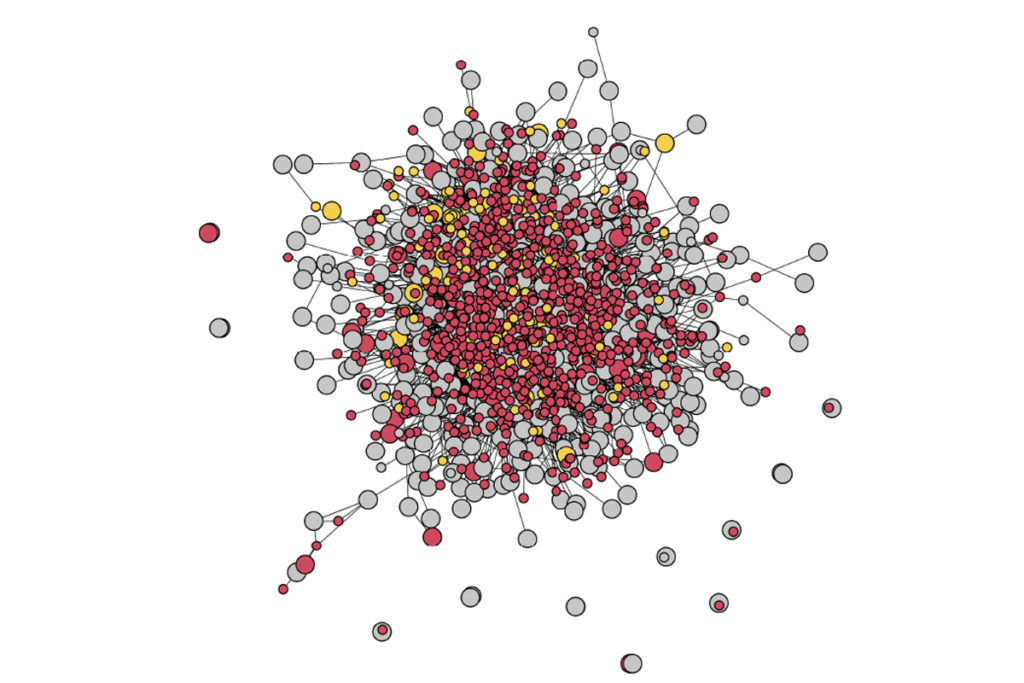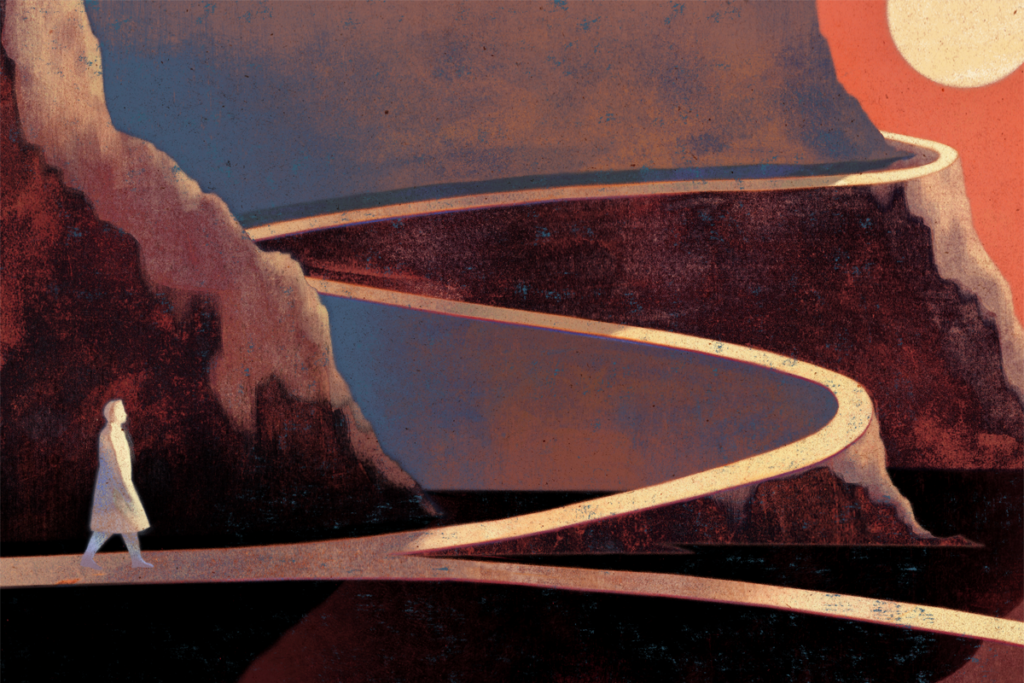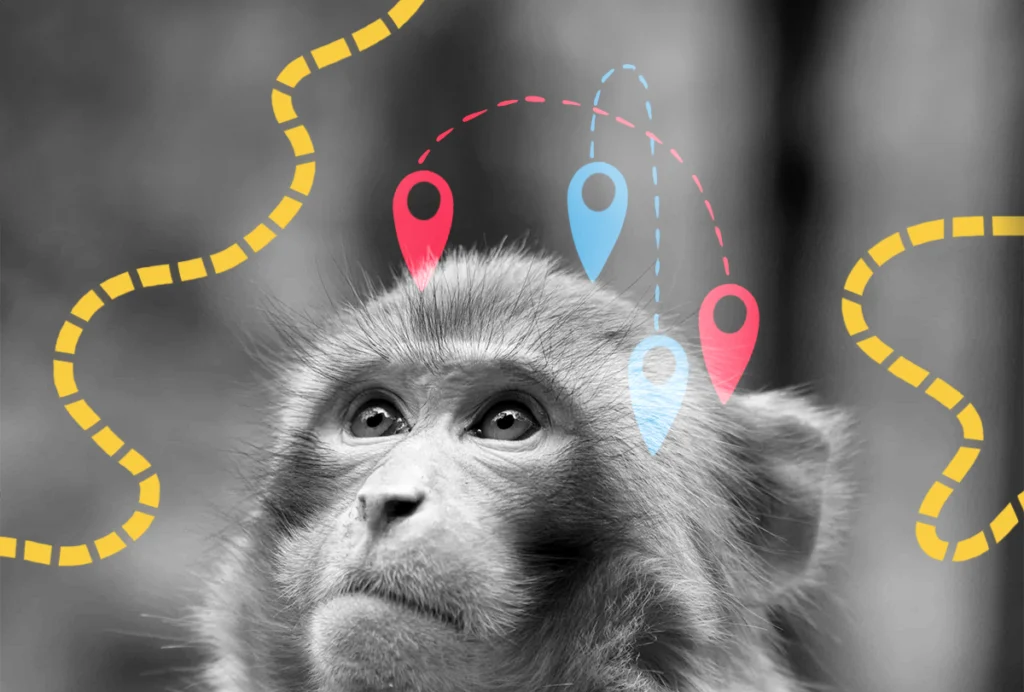Katie Moisse is contributing editor and former news editor at The Transmitter. She teaches science communication at McMaster University in Hamilton, Ontario, Canada. She has a Ph.D. in neuropathology from the University of Western Ontario and an M.S. in journalism from Columbia University.

Katie Moisse
Contributing editor
The Transmitter
From this contributor
Memory study sparks debate over statistical methods
Critics of a 2024 Nature paper suggest the authors failed to address the risk of false-positive findings. The authors argue more rigorous methods can result in missed leads.

Memory study sparks debate over statistical methods
Inhibitory cells work in concert to orchestrate neuronal activity in mouse brain
A cubic millimeter of brain tissue, meticulously sectioned, stained and scrutinized over the past seven years, reveals in stunning detail the role of inhibitory interneurons in brain structure and function.

Inhibitory cells work in concert to orchestrate neuronal activity in mouse brain
Sequencing study spotlights tight web of genes tied to autism
The findings, shared in a preprint, help to illuminate how a large and heterogeneous group of genes could be involved in autism.

Sequencing study spotlights tight web of genes tied to autism
Static pay, shrinking prospects fuel neuroscience postdoc decline
Postdoctoral researchers sponsored by the National Institutes of Health now toil longer than ever before, for less money. They are responding accordingly.

Static pay, shrinking prospects fuel neuroscience postdoc decline
Monkeys build mental maps to navigate new tasks
Cognitive maps, also known as world models, allow animals to imagine novel scenarios based on past experiences.

Monkeys build mental maps to navigate new tasks
Explore more from The Transmitter
Machine learning spots neural progenitors in adult human brains
But the finding has not settled the long-standing debate over the existence and extent of neurogenesis during adulthood, says Yale University neuroscientist Juan Arellano.

Machine learning spots neural progenitors in adult human brains
But the finding has not settled the long-standing debate over the existence and extent of neurogenesis during adulthood, says Yale University neuroscientist Juan Arellano.
Xiao-Jing Wang outlines the future of theoretical neuroscience
Wang discusses why he decided the time was right for a new theoretical neuroscience textbook and how bifurcation is a key missing concept in neuroscience explanations.
Xiao-Jing Wang outlines the future of theoretical neuroscience
Wang discusses why he decided the time was right for a new theoretical neuroscience textbook and how bifurcation is a key missing concept in neuroscience explanations.
Attention not necessary for visual awareness, large study suggests
People can perceive some visual information even if they do not pay direct attention to it.

Attention not necessary for visual awareness, large study suggests
People can perceive some visual information even if they do not pay direct attention to it.